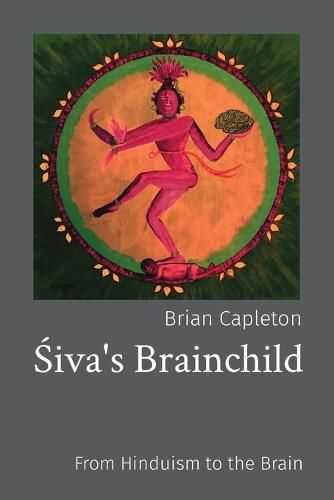Readings Newsletter
Become a Readings Member to make your shopping experience even easier.
Sign in or sign up for free!
You’re not far away from qualifying for FREE standard shipping within Australia
You’ve qualified for FREE standard shipping within Australia
The cart is loading…






This title is printed to order. This book may have been self-published. If so, we cannot guarantee the quality of the content. In the main most books will have gone through the editing process however some may not. We therefore suggest that you be aware of this before ordering this book. If in doubt check either the author or publisher’s details as we are unable to accept any returns unless they are faulty. Please contact us if you have any questions.
Hinduism is ancient. Considered as one religion, it is the oldest religion on Earth. Modern scientific understanding, in contrast, is relatively very recent. It is only in this very recent mode of understanding that we have come to understand the basic material structure of the human brain is that of a supremely complex network.
We don't find anything in the Hindu corpus that refers to this, or to the modern scientific fact that our experience of self and world as human beings, is a construct of the functioning of this supremely complex network. And yet Hinduism itself contains, expressed through a cultural fabric, the representation of a supreme understanding, through which the most fundamental fact of modern brain science comes into focus.
The point of Hinduism, like that of any of the great religions, is the discovery of God, and not merely the provision of entertaining stories about our origins. With this in mind, this book contains a steep but fast shortcut into the core content behind the cultural fabric, in such a way that is compatible with Western inquiry, whilst giving full due regard to the profound and spiritual nature of the corpus.
It is all too easy to regard the pantheon of Hinduism as proof of its estrangement and disconnection from a religion such as Christianity, which amongst the religions predominates in the West. But such a judgement would be to overlook the one thing that all cultures and all religions have in common, and on which they depend for their expression, in the first place. Which is none other than human brain function.
In these pages the deeper content of the Hindu corpus and the single most fundamental fact of modern neuroscience, come together. They are exposed together, for anyone who is interested, to show how in a very 21st-century way, as well as in an ancient Hindu way, we are what Hinduism may might regard as Siva's brainchild.
$9.00 standard shipping within Australia
FREE standard shipping within Australia for orders over $100.00
Express & International shipping calculated at checkout
Stock availability can be subject to change without notice. We recommend calling the shop or contacting our online team to check availability of low stock items. Please see our Shopping Online page for more details.
This title is printed to order. This book may have been self-published. If so, we cannot guarantee the quality of the content. In the main most books will have gone through the editing process however some may not. We therefore suggest that you be aware of this before ordering this book. If in doubt check either the author or publisher’s details as we are unable to accept any returns unless they are faulty. Please contact us if you have any questions.
Hinduism is ancient. Considered as one religion, it is the oldest religion on Earth. Modern scientific understanding, in contrast, is relatively very recent. It is only in this very recent mode of understanding that we have come to understand the basic material structure of the human brain is that of a supremely complex network.
We don't find anything in the Hindu corpus that refers to this, or to the modern scientific fact that our experience of self and world as human beings, is a construct of the functioning of this supremely complex network. And yet Hinduism itself contains, expressed through a cultural fabric, the representation of a supreme understanding, through which the most fundamental fact of modern brain science comes into focus.
The point of Hinduism, like that of any of the great religions, is the discovery of God, and not merely the provision of entertaining stories about our origins. With this in mind, this book contains a steep but fast shortcut into the core content behind the cultural fabric, in such a way that is compatible with Western inquiry, whilst giving full due regard to the profound and spiritual nature of the corpus.
It is all too easy to regard the pantheon of Hinduism as proof of its estrangement and disconnection from a religion such as Christianity, which amongst the religions predominates in the West. But such a judgement would be to overlook the one thing that all cultures and all religions have in common, and on which they depend for their expression, in the first place. Which is none other than human brain function.
In these pages the deeper content of the Hindu corpus and the single most fundamental fact of modern neuroscience, come together. They are exposed together, for anyone who is interested, to show how in a very 21st-century way, as well as in an ancient Hindu way, we are what Hinduism may might regard as Siva's brainchild.